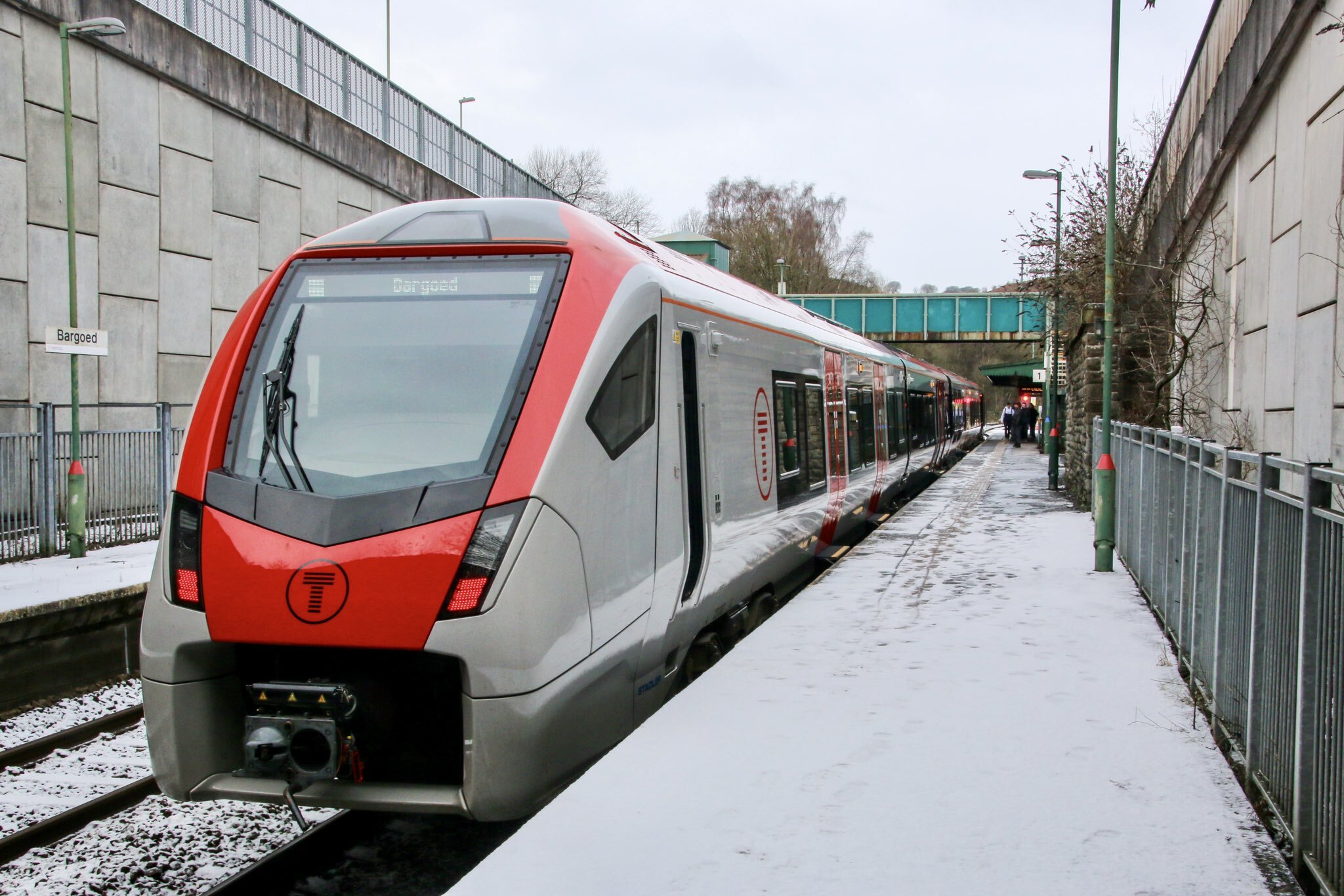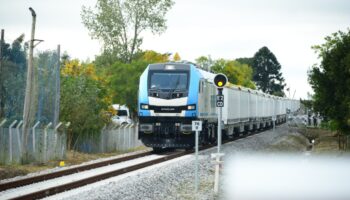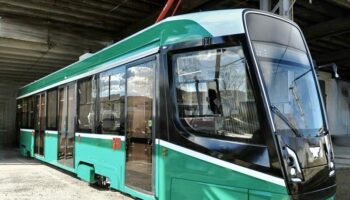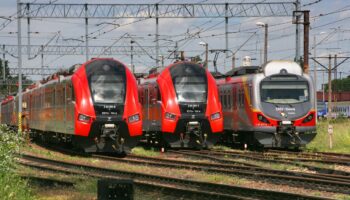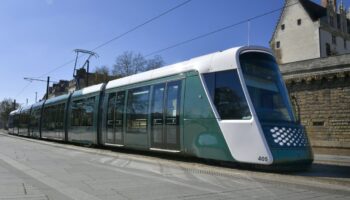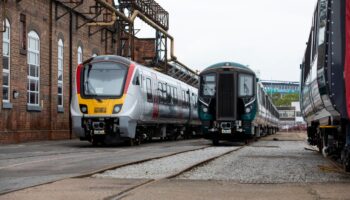UK: In January the passenger railway operator Transport for Wales (TfW) put into operation the diesel FLIRT on the Rhymney – Penarth line, and a new generation of city trains, IPEMU, entered service on the Merseyrail network in the Liverpool City Region. Both operators expect future supplies of hybrid versions of these platforms.
Stadler produced a fleet of 11 four-car FLIRT trains (or British Rail Class 231) in Bussnang in 2021–2022. The first diesel-electric multiple unit started passenger service last week. According to the operator’s representative, the official launch of the entire fleet will take place in a month. The trains are supplied under a large order Stadler received in 2019. TfW expects 11 FLIRT diesel and 24 FLIRT TRIMODAL tri-mode trains of various configurations and 36 three-car Citylink tram-trains. The first FLIRT TRIMODAL was unveiled at InnoTrans 2022. This hybrid train can be powered by AC contact lines, batteries, or a 480 kW diesel engine certified to Stage V.
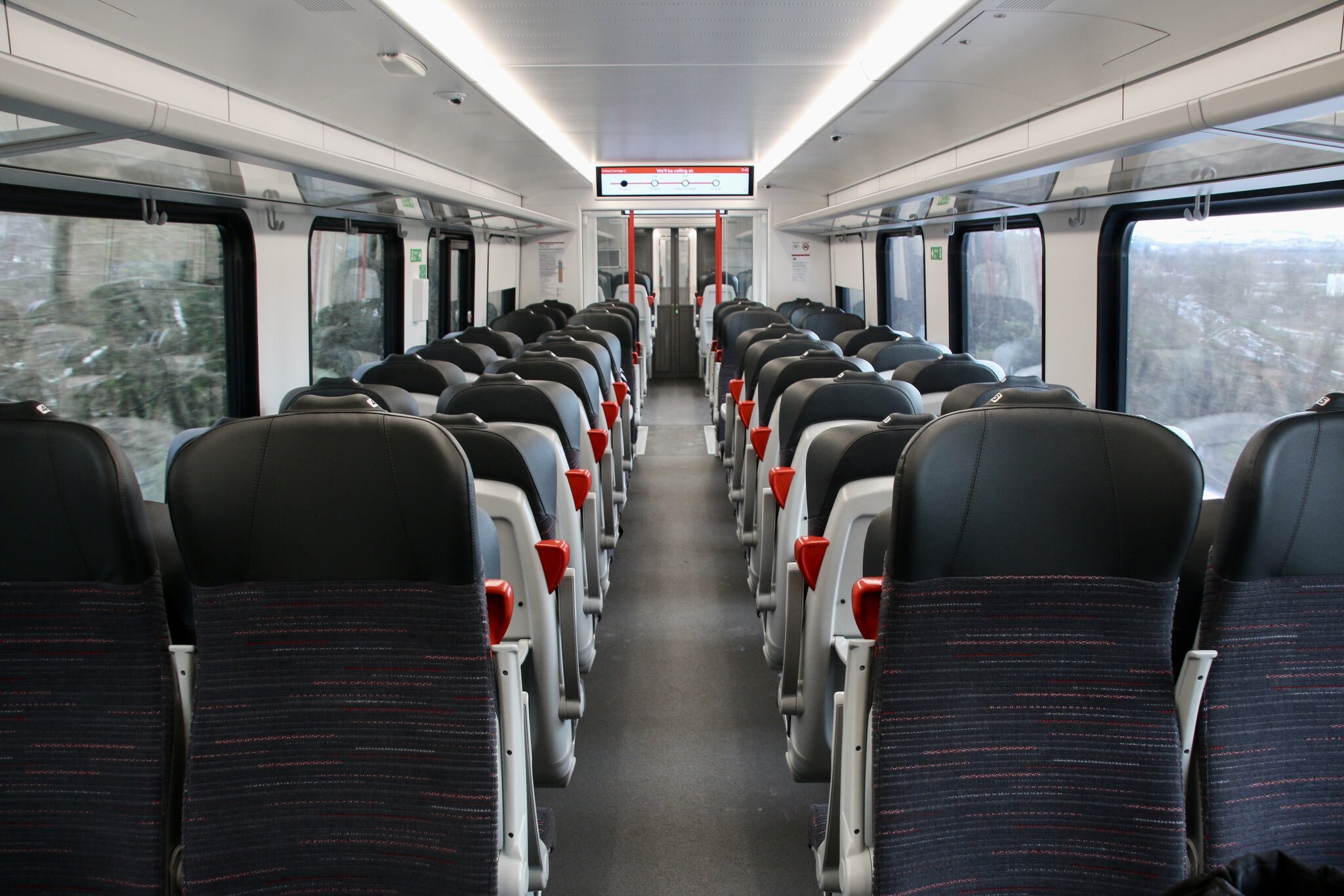 Interior of the FLIRT diesel Rail Class 231 by Stadler. Source: Buzz/twitter
Interior of the FLIRT diesel Rail Class 231 by Stadler. Source: Buzz/twitter
The FLIRT diesel train has a maximum speed of 145 km/h with an acceleration of 0.9 m/s². The diesel engines installed in the undercarriage total 1,500 kW and comply with the EU Stage V emissions regulation. The bodies are made of aluminium profiles and the front of the driver’s cab of reinforced fibreglass. Each train-set accommodates 386 passengers and has 206 seats. All passengers can safely enter and leave the train as the automatic retractable step matches the platform height.
The IPEMU four-car train (British Rail Class 777) that started running on the Liverpool – Kirkby route is designed for urban service. The manufacturer was awarded a €598 mln contract for the supply of 53 trains and the construction of the depot in February 2017. According to specifications, all trains will have a low-capacity battery package for operation in depots and allow conversion to service on 25 kW AC lines.
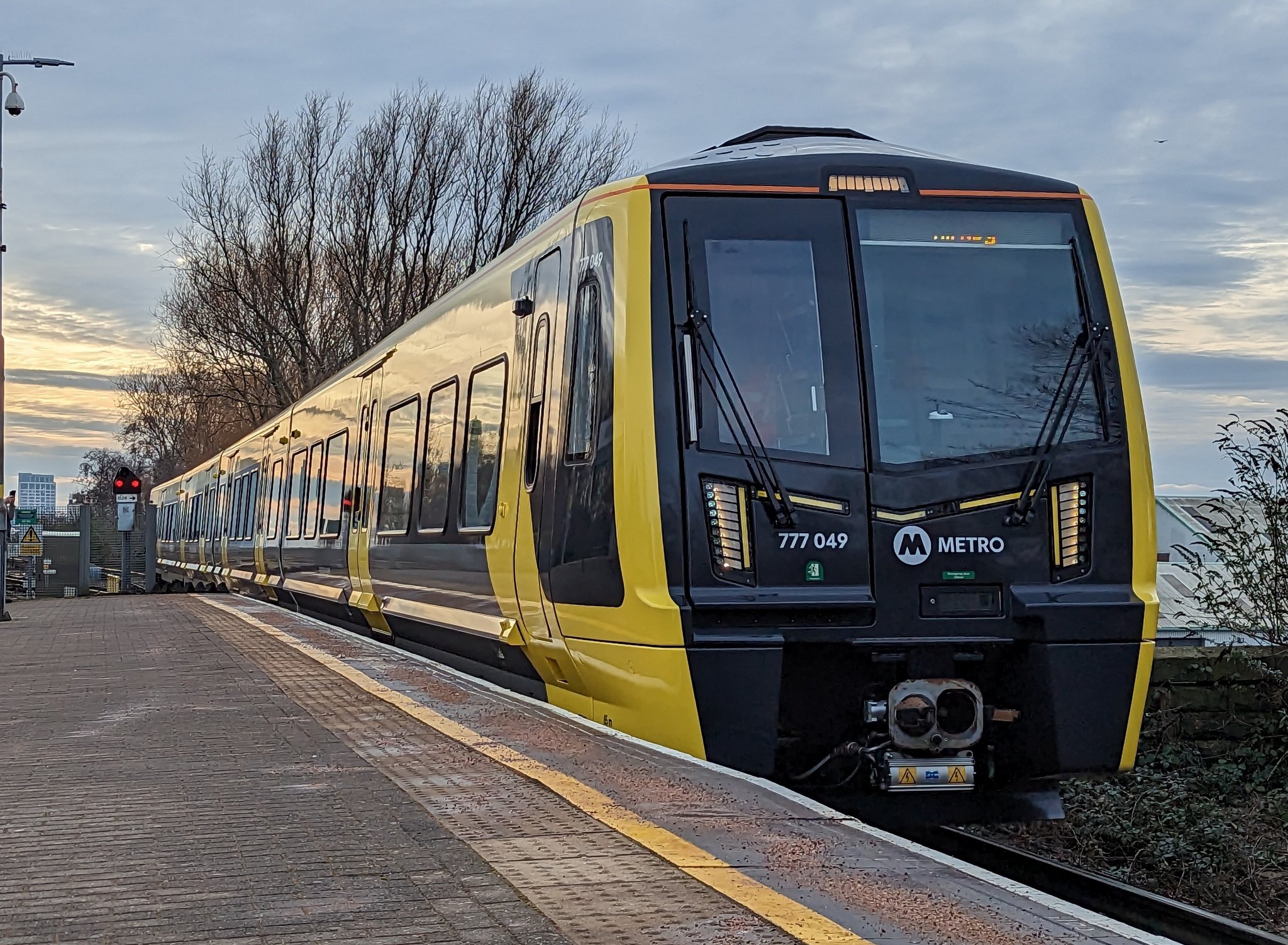 Hybrid Rail Class 777 IPEMU by Stadler at Kirkby. Source: DOTS/twitter
Hybrid Rail Class 777 IPEMU by Stadler at Kirkby. Source: DOTS/twitter
In the next 12 to 18 months, the new IPEMU train-sets are expected to replace the fleet of Rail Classes 507 and 508 that the British Rail Engineering produced in 1978–1980. New vehicles accommodate twice as many passengers, consume about 20% less energy due to the improved traction system, and weigh 5.5 t less.
The IPEMU accommodates 486 people, 184 of them seating, and has an integrated real-time passenger counting system. In a third rail mode, the train can operate at a maximum speed of 120 km/h with an acceleration of 1.1 m/s². The traction system is equipped with six 350 kW motors and IGBT power converters. The car bodies are made of extruded aluminium profiles.
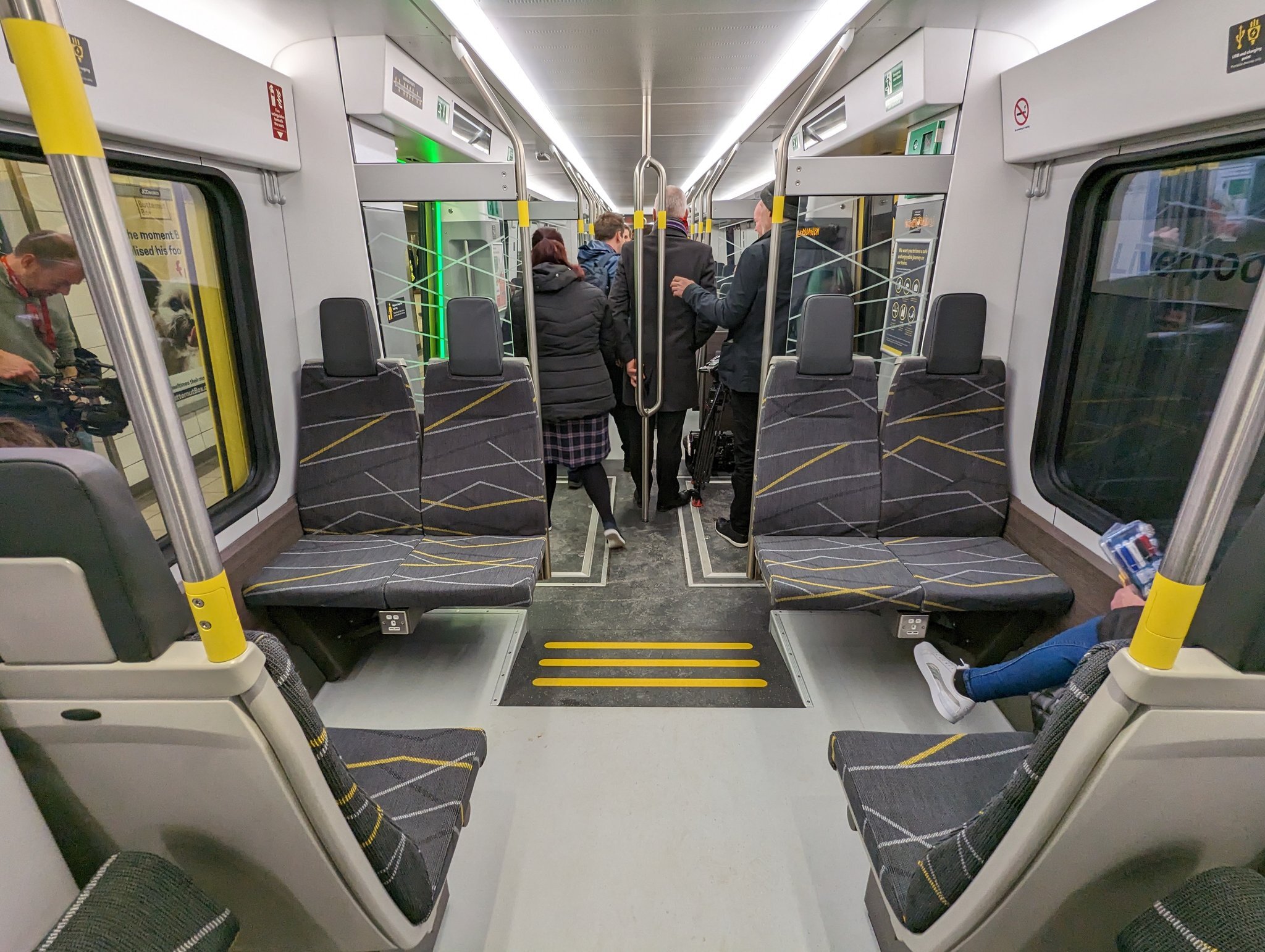
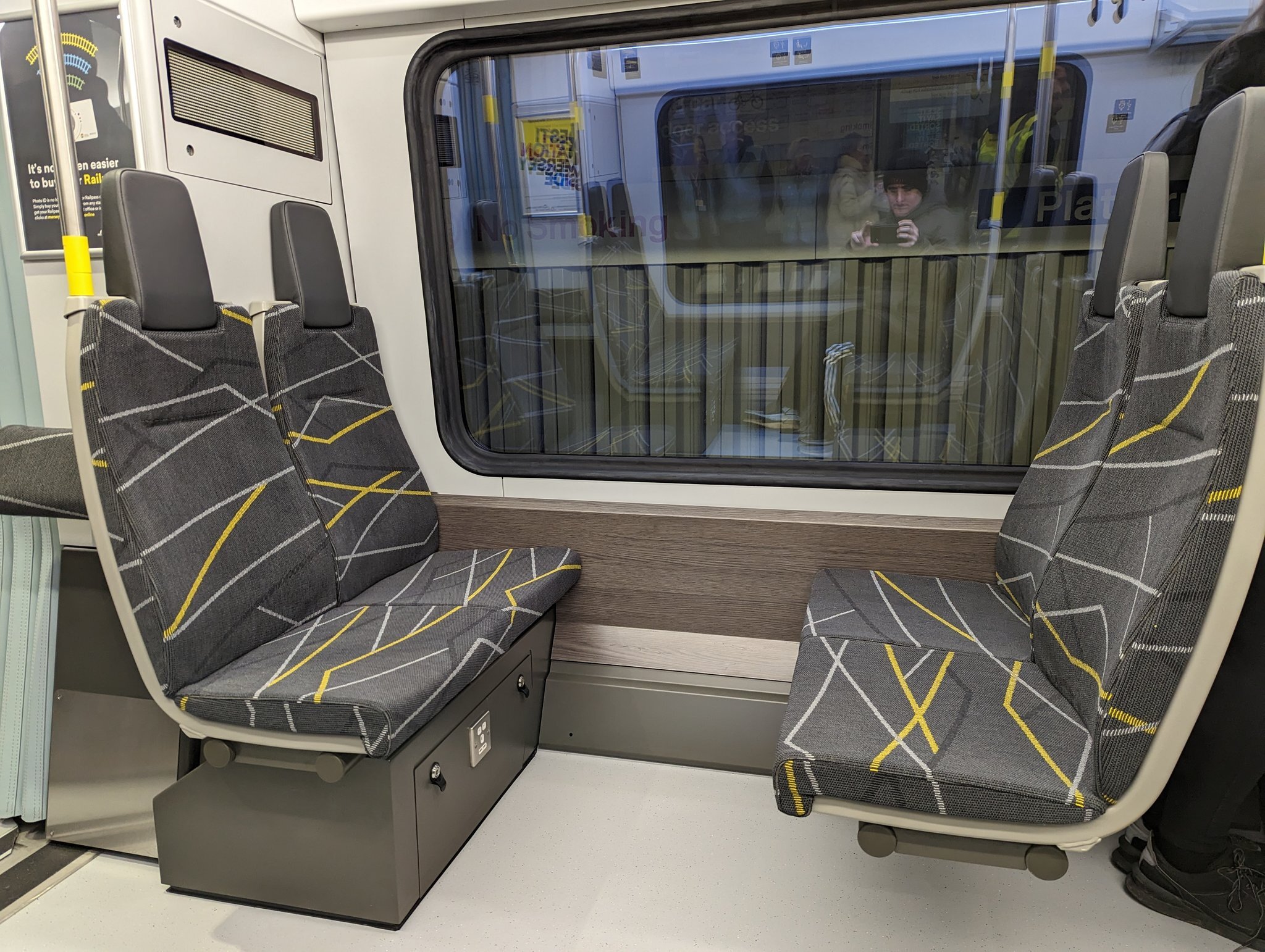 Interior of the hybrid Rail Class 777 IPEMU by Stadler. Source: DOTS/twitter
Interior of the hybrid Rail Class 777 IPEMU by Stadler. Source: DOTS/twitter
Merseytravel, the Liverpool transport authority, contracted Stadler to convert seven of the supplied IPEMUs for hybrid operation under overhead catenary lines and by batteries. Such a train was one of the main premiers of InnoTrans 2022. Over non-electrified lines, the hybrid IPEMU can move at 100 km/h powered by the Lithium Titanate Oxide (LTO) traction battery packs with an aggregate capacity of 320 kW. The battery traction equipment is mounted in the underframe and its cooling system is on the roof. With the announced recharging time of up to 15 minutes from a DC third rail and 10,000+ charge/discharge cycles, a battery ensures an operation range of 55 km. According to Stadler, the smooth transition from battery mode is virtually imperceptible by passengers. Now the IPEMU is tested.



